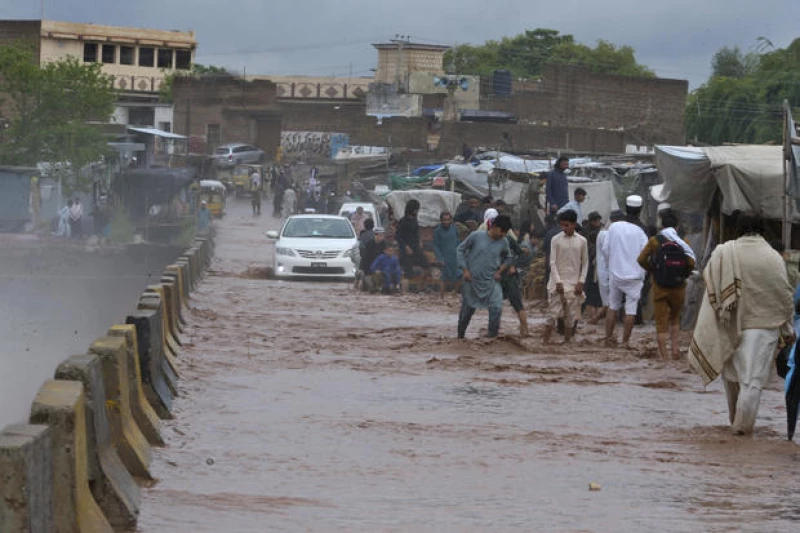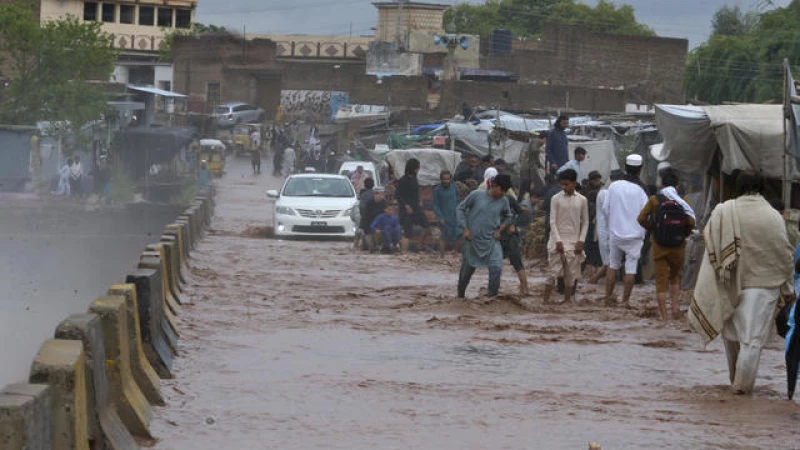Reports from central Asia indicate a sharp rise in death tolls as extreme weather conditions continue to impact the region. The combined toll in Pakistan and Afghanistan has reached at least 135, with approximately 70 people losing their lives in the past five days due to heavy rains.
The situation in Afghanistan is dire, with a dry winter leading to parched land that is now experiencing flash-flooding from spring downpours in many provinces.
Janan Sayeq, a spokesman for disaster management, confirmed that "approximately 70 people lost their lives" between Saturday and Wednesday. He also reported 56 injuries, over 2,600 houses damaged or destroyed, and 95,000 acres of farmland washed away.
Giving a smaller death toll last week, Sayeq said most fatalities at that point had been caused by roof collapses resulting from the deluges.
Pakistan is seeing heavier rain in April due to climate change, Zaheer Ahmed Babar, a senior official at the Pakistan Meteorological Department, told the AP.
"This month, so far there has been 353% more rainfall than normal in Baluchistan," Babar said. "Overall, rainfall has been 99% higher than the average across Pakistan, and it shows climate change has already happened in our country."
Babar said Khyber Pakhtunkhwa province witnessed 90% more rain than usual in April, although rainfall in other parts of the country has remained relatively normal. It has been the wettest April in the past 30 years.
In 2022, downpours swelled rivers and at one point flooded a third of Pakistan, killing 1,739 people. The floods also caused $30 billion in damages, from which Pakistan is still trying to rebuild. Baluchistan saw rainfall at 590% above average that year, while Karachi saw 726% more rainfall than usual.

Recent reports from the United Nations have highlighted the concerning trend of extreme weather conditions in Afghanistan. The country has been experiencing major swings in weather patterns, leading to devastating consequences.
Notably, flash floods have wreaked havoc in Afghanistan, causing damage to 2,000 homes, three mosques, and four schools. Thousands of people have been affected by the floods, requiring urgent humanitarian assistance. In addition, the floods have also destroyed agricultural land and resulted in the deaths of 2,500 animals.
It is alarming to note that after enduring four decades of war, Afghanistan remains ill-equipped to deal with such extreme weather events. Scientists attribute the increasing frequency and severity of these events to climate change, underscoring the urgent need for global action.







